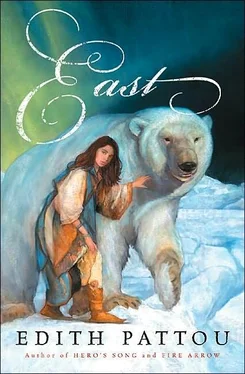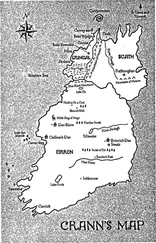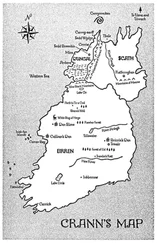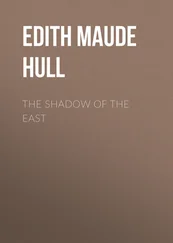Edith Pattou - East
Здесь есть возможность читать онлайн «Edith Pattou - East» весь текст электронной книги совершенно бесплатно (целиком полную версию без сокращений). В некоторых случаях можно слушать аудио, скачать через торрент в формате fb2 и присутствует краткое содержание. Год выпуска: 2002, ISBN: 2002, Издательство: Graphia, Жанр: Старинная литература, на английском языке. Описание произведения, (предисловие) а так же отзывы посетителей доступны на портале библиотеки ЛибКат.
- Название:East
- Автор:
- Издательство:Graphia
- Жанр:
- Год:2002
- ISBN:9780756950545
- Рейтинг книги:3 / 5. Голосов: 2
-
Избранное:Добавить в избранное
- Отзывы:
-
Ваша оценка:
- 60
- 1
- 2
- 3
- 4
- 5
East: краткое содержание, описание и аннотация
Предлагаем к чтению аннотацию, описание, краткое содержание или предисловие (зависит от того, что написал сам автор книги «East»). Если вы не нашли необходимую информацию о книге — напишите в комментариях, мы постараемся отыскать её.
East — читать онлайн бесплатно полную книгу (весь текст) целиком
Ниже представлен текст книги, разбитый по страницам. Система сохранения места последней прочитанной страницы, позволяет с удобством читать онлайн бесплатно книгу «East», без необходимости каждый раз заново искать на чём Вы остановились. Поставьте закладку, и сможете в любой момент перейти на страницу, на которой закончили чтение.
Интервал:
Закладка:
"The fit is good," he observed with a wide smile.
I nodded and then said, with a vague thought of warning him, "'Tis Rose's first gift."
His smile grew even wider. "Ah, this is good." Then a thought penetrated his head. "She will be a traveler, an explorer!" he said with enthusiasm. So he did know of the first-gift superstition after all.
This time Eugenia did not attempt to hide the frown that creased her face, and I tensed, fearing what she might say. Instead she reached down and straightened one of the boot ties. "Thank you, neighbor Torsk," she said through stiff lips. Her voice was cold, and a puzzled look passed over the big man's face.
I stepped forward and, muttering something about Eugenia still being weak, ushered Torsk to the door.
"Was there something wrong with the boots?" he asked, bewildered.
"No, no," I reassured him. "They are wonderful. Eugenia is tired, that is all. And you know mothers—they like to keep their babes close. She's not quite ready for the notion of little Rose wandering the countryside."
Nor would she ever be. Though I did not say that to neighbor Torsk.
That night after we had pried Neddy from Rose's basket and gotten all the children to sleep, Eugenia said to me, "Didn't Widow Hautzig bring over a crock of butter for the baby?"
"She was only returning what you loaned her," I said.
"No, it was for Ebba Rose. Her first gift, I'm quite sure." Her voice was definite.
Eugenia did like to keep her children close, but it turned out she wanted to keep Rose closest of all. And that had everything to do with the circumstances of Rose's birth.
Neddy
OUR FAMILY WASN'T ALWAYS poor. My grandfather Esbjorn Lavrans had a well-respected mapmaking business, and my father's father was a prosperous farmer. But Father had a falling-out with his family when he went to Bergen to be an apprentice to the mapmaker Esbjorn. My mother, Eugenia, was Esbjorn's daughter, which is how Father met her.
Father and Mother had eight children. Rose was the last-born and I was second to last, four years old when they brought Rose home from Askoy Forest. Some would say four is too young to remember, but I definitely have memories. Lots of them. I remember her smell, like warm milk and soft green moss. I remember the noises she'd make—gurgling like the creek we later took to calling Rosie's Creek because she fell into it so often; the clicking she made with her tongue, like a wren pecking at our chimney; the howls of frustration when she kept toppling over while learning to walk. Not that it took her long. She was running around on her short legs at just five months.
I also remember clearly the evening Mother and Father came home from an afternoon of herb hunting, and instead of herbs they were carrying a lumpy bundle that made funny noises.
My older brothers and sisters had been worried about Mother and Father because there had been a storm and they were much later than usual returning. I told everyone not to worry, that they had gone out to bring home the baby and that's why they were so late getting home.
My older sister Selme laughed. "Mother is still more than a month away from her lying-in time," she said. "And besides, everyone knows you can't just go pluck babies out of Askoy Forest," she added with a superior look.
But it turned out I was right after all.
When they finally came through the door, Mother looked very pale and sat down as soon as she could, holding the noisy thing on her lap. The others crowded around, but I hung back, waiting. When they'd all looked long enough, Father led me to Mother's side. When I gazed at the little scrunched-up face, I felt a peculiar glow of pride. Like I'd done something good. I knew it was Mother who'd brought this baby into the world (and she certainly looked worn out from doing it), but from that moment I felt like the wild little brownhaired baby was my very own gift—and that it would be my job to watch over her.
If I had known just how wild a thing she would turn out to be, I might have thought twice about taking her on. It's a funny thing. I think it was Mother and I who had the hardest time with Rose's wandering ways. But we both had different ways of living with it. Mother tried always to reel her in. To keep her close by. But for me, I knew it couldn't be done, so I just ached and felt sorry for myself when she'd disappear. That's the trouble with loving a wild thing: You're always left watching the door.
But you also get kind of used to it.
Rose
I COULD SAY THAT I FELT guilty and ashamed about the trouble I was always getting into when I was a child, driving my mother to her wit's end on a daily basis. But the truth is I never did feel either of those things.
I don't think it's because I was selfish or unfeeling. I just couldn't understand what all the fuss was about. What was a little spilled blood or a broken bone now and then?
I never set out to be disobedient. I just couldn't keep my thoughts, and then my feet, still. I'd see something—the azure flash of a butterfly's wing, a formation of clouds like a ship's mast and sails, a ripe yellow apple perched high in a tree—and I'd be off after it without a second thought.
Exploring ran in my blood. My grandfather Esbjorn was a mapmaker as well as an explorer. And my great-great-grandfather was one of the first Njordens to travel to Constantinople.
The only thing that gave me the slightest twinge of sadness was Neddy, with his exasperated, sorry-for-himself look when he found me after yet another time I'd run off without telling anyone.
"But I saw this rabbit with a tail so white it glowed " I'd try to explain (when I was old enough to put words to my feelings).
Neddy would just sigh and say that Mother wanted me in the kitchen straightaway.
"I'm sorry, Neddy," I'd say, wrapping my arms around his legs, watching the corners of his mouth for the smile I always managed to squeeze out of him. And then I'd go to the kitchen and Mother would scold me yet again.
Neddy
TO SAY THAT MY MOTHER was superstitious would be like saying the great blizzard of 1539 was naught but a light snowfall.
Every single thing a body did in our house was charged with meaning. To sweep dust out the front door was to sweep away all your good luck. To sing while baking bread was to guarantee the arrival of ill fortune. To have an itch on the left side of your body meant certain disaster. And if you sneezed on a Wednesday, you would surely receive a letter—good news if you were facing east and bad if facing north.
Father liked to tell the story of how he first learned of Mother's "birth-direction" superstition.
When Father and Mother announced their engagement to her family, the first words to come out of his future mother-in-law's mouth were "But Arne, we don't even know what your birth direction is!" is
Father said that he gaped at her, totally bewildered.
"Yes, Arne, we must know right away, before you and Eugenia make any more plans."
"Oh, I'm quite certain he's a south, or a southeast," Mother said reassuringly.
"But we must know for sure," said her mother.
Father said he started to laugh then, thinking they were having some elaborate joke with him. But they weren't.
And Father would have us all doubled over with laughter as he described the pilgrimage to my grandparents' farm to interrogate them regarding the direction my father's mother was facing when she gave birth to him. It turned out that the direction his mother was facing when Father was born was southeast, which was a good thing according to Mother.
What wasn't such a good thing is that this turned out to be the last time Father saw his family. There had already been ill feeling between them that Father had hoped to heal during the visit. But if anything, the strange line of questioning from the "city folk" Father was marrying into seemed to make matters worse, and they parted with bad blood.
Читать дальшеИнтервал:
Закладка:
Похожие книги на «East»
Представляем Вашему вниманию похожие книги на «East» списком для выбора. Мы отобрали схожую по названию и смыслу литературу в надежде предоставить читателям больше вариантов отыскать новые, интересные, ещё непрочитанные произведения.
Обсуждение, отзывы о книге «East» и просто собственные мнения читателей. Оставьте ваши комментарии, напишите, что Вы думаете о произведении, его смысле или главных героях. Укажите что конкретно понравилось, а что нет, и почему Вы так считаете.












